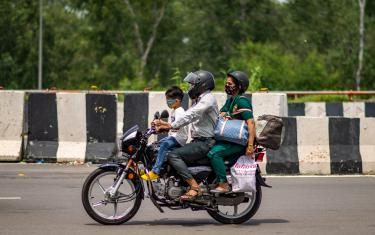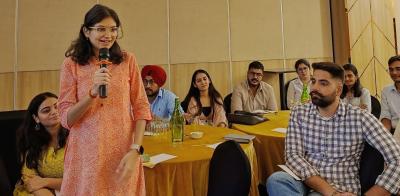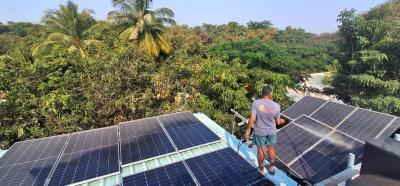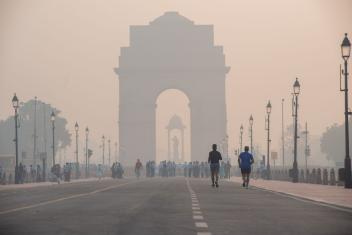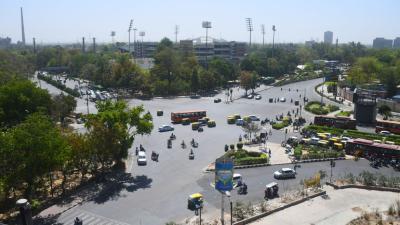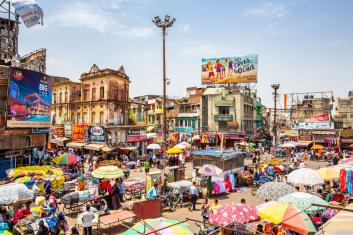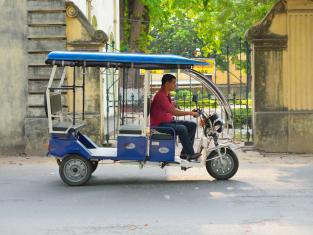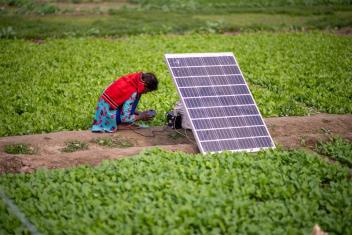Blogs
The blogs are part of WRI India’s mission to provide unbiased, expert analysis on the most important environmental issues facing the world today.
In today’s rapid-fire, fragmented information culture, we hope these insights will provide a measure of clarity to decision-makers worldwide.
-
Breathing Unequally: Impact of Air Pollution on Women
by e -Seema, a householder worker, lives in a one-room dwelling where she shoulders the responsibility of five lives – three young children, a paralyzed father-in-law, and an unemployed husband. Every day, she walks approximately four kilometers to drop her children at school before heading to the house where she works. "In winter, it feels smoky everywhere (referring to smog). My eyes burn and I find it difficult to breathe," Seema confesses. Between earning a living and fretting over her children's interrupted education during extreme winters, Seema has little space to contemplate how the...
-
Engaging Young Professionals in Jalandhar’s Urban Transformation
by , e -Daya begins his day early, stepping out of the bustling Jalandhar Smart City Limited office and catching a local bus to the Kala Sanghian Drain — a site he has been monitoring for over three weeks. He is trying to understand the waste management practices in the neighborhoods along the drain. He meets the residents and zonal and district officers to find out the root causes behind the dumping of solid waste in the drain. Armed with fresh insights and a sense of accomplishment, he returns to the office to brief the commissioner on his findings from the field visit.
-
12 Years Under the Sun: Two Rooftop Solar Journeys
by e -India’s rooftop solar PV landscape has undergone a remarkable transformation over the last decade, evolving from a niche option to a practical solution for homeowners across the country. In 2018, India’s rooftop solar capacity stood at a modest 1 GW. By 2024, it surged to almost 12 GW – a tenfold increase. Rooftop solar is playing a pivotal role in the Indian government’s target of establishing 500 GW of cumulative electric power from non-fossil fuel-based energy resources by 2030.
-
Low-Emission Zones: A Blueprint for Delhi's Urban Transformation
by , e -India's urban centers are grappling with a severe air pollution crisis that poses a significant threat to public health and urban livability. Studies suggest that each year, Delhi records approximately 12,000 air pollution-related deaths, accounting for 11.5% of its total fatalities.
-
Reimagining Delhi's Intersections for a Safer Commute
by , e -People of all ages step out and navigate roads across India every day and yet, the many road crashes that regularly feature in news headlines are a reminder that the current state of road safety is far from ideal. In 2023, Delhi recorded a total of 5,834 road crashes resulting in 1,457 fatalities and injuries to 5,470 individuals. This is 18% more than the crashes in 2021. The steep increase in road crashes has been recorded around blackspots near the larger junctions.
-
Take 12: What We Learnt from Our Podcast on Cities
by e -The pandemic cemented the realization that business as usual cannot continue. For many, life slowed down enough to pause, reflect and join in the growing conversation about doing things differently, including the way our cities work. “What struck me most was that people, who weren’t planners or climate experts, were eager to leverage their expertise to make our cities more livable but didn’t know how to contribute, or whom to engage with,” says Jaya Dhindaw, Executive Director, Sustainable Cities, WRI India.
-
Decoding Urban Adaptation Finance
by e -The devastating wildfires in California are yet another reminder that people in cities across the world are facing varied, recurrent and intense impacts of climate change. It has never been more evident that climate action is the need of the hour. Then why do challenges to climate financing persist?
-
Powering Indian E-rickshaws: Toward Alternate Battery Technologies
by e -The Government of India’s vehicle registration dashboard, Vahan, recorded the registration of over 18.1 lakh e-rickshaws across the country as of November 2024. E-rickshaws are seeing widespread adoption since they do not require a separate permit and are relatively more affordable as they are also backed by supportive government subsidies. A less physically taxing alternative to cycle rickshaws and a more environment-friendly alternative to internal combustion engine (ICE) three-wheelers, e-rickshaws are often the prime mode of transport in small towns and villages. E-rickshaws also offer first-and-last-mile connectivity in urban areas and are used by about 60 million daily passengers in India.
-
Systems Thinking for a People-centered Transition to a Low-carbon Economy
by -The COP29 climate summit at Baku ended with a disappointing outcome on climate finance. Even after three decades of international negotiations on climate change, progress has been slow. Why is it so hard for countries to agree on climate action?
-
Decoding Article 6 and Climate Finance Outcomes at COP29
by e -There were disappointments amid the headlines as the gavel came down on the United Nations Climate Change Conference, COP29, in Baku, Azerbaijan. COP29 did achieve some notable outcomes, particularly on Article 6 of the Paris Agreement, which lays out how countries can trade carbon credits to achieve their climate targets. Meanwhile, climate finance — 2024’s overarching theme — sparked intense debate over its sources and definitions. A headline figure was agreed upon, but developing nations were left seeking greater clarity and stronger commitments.

